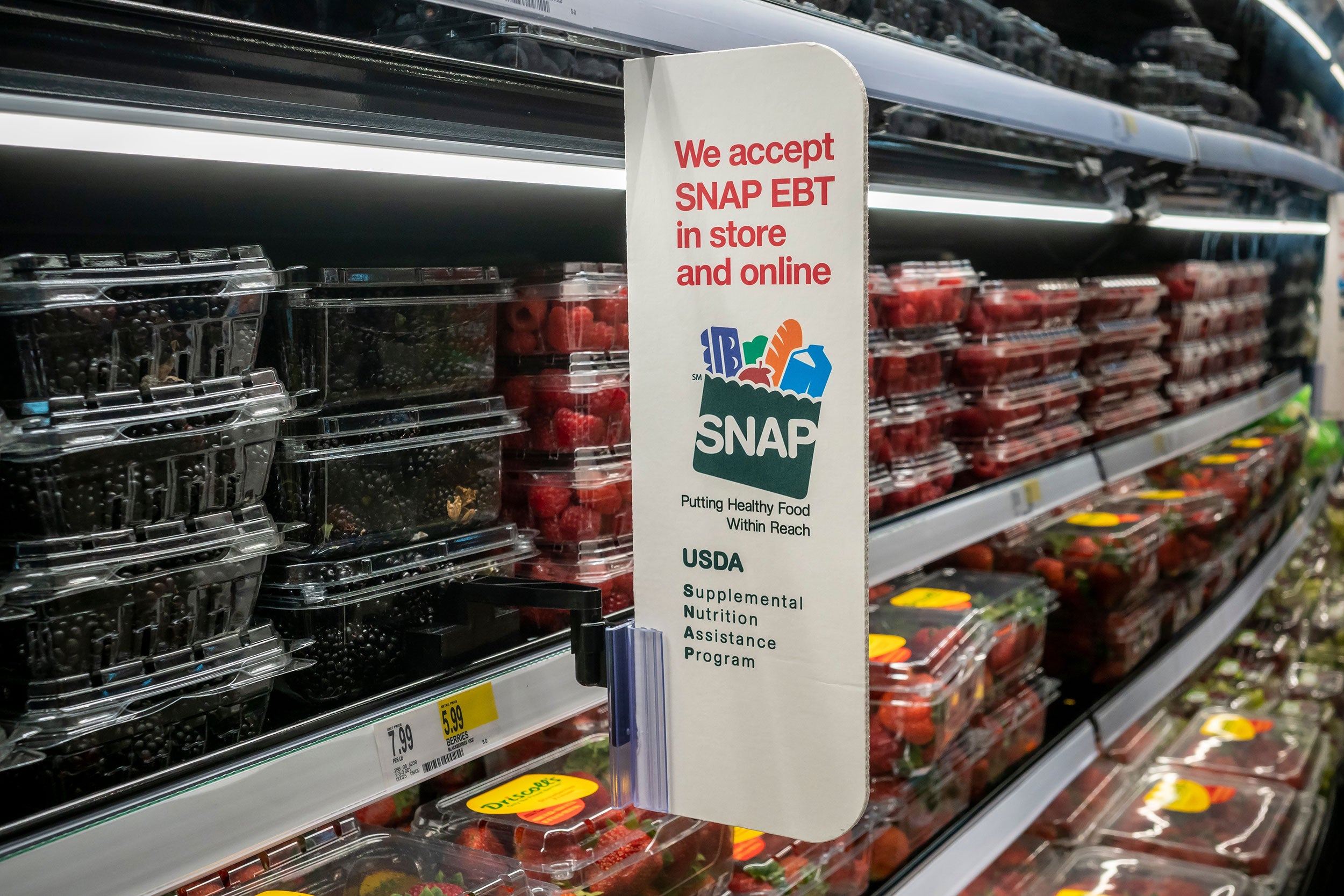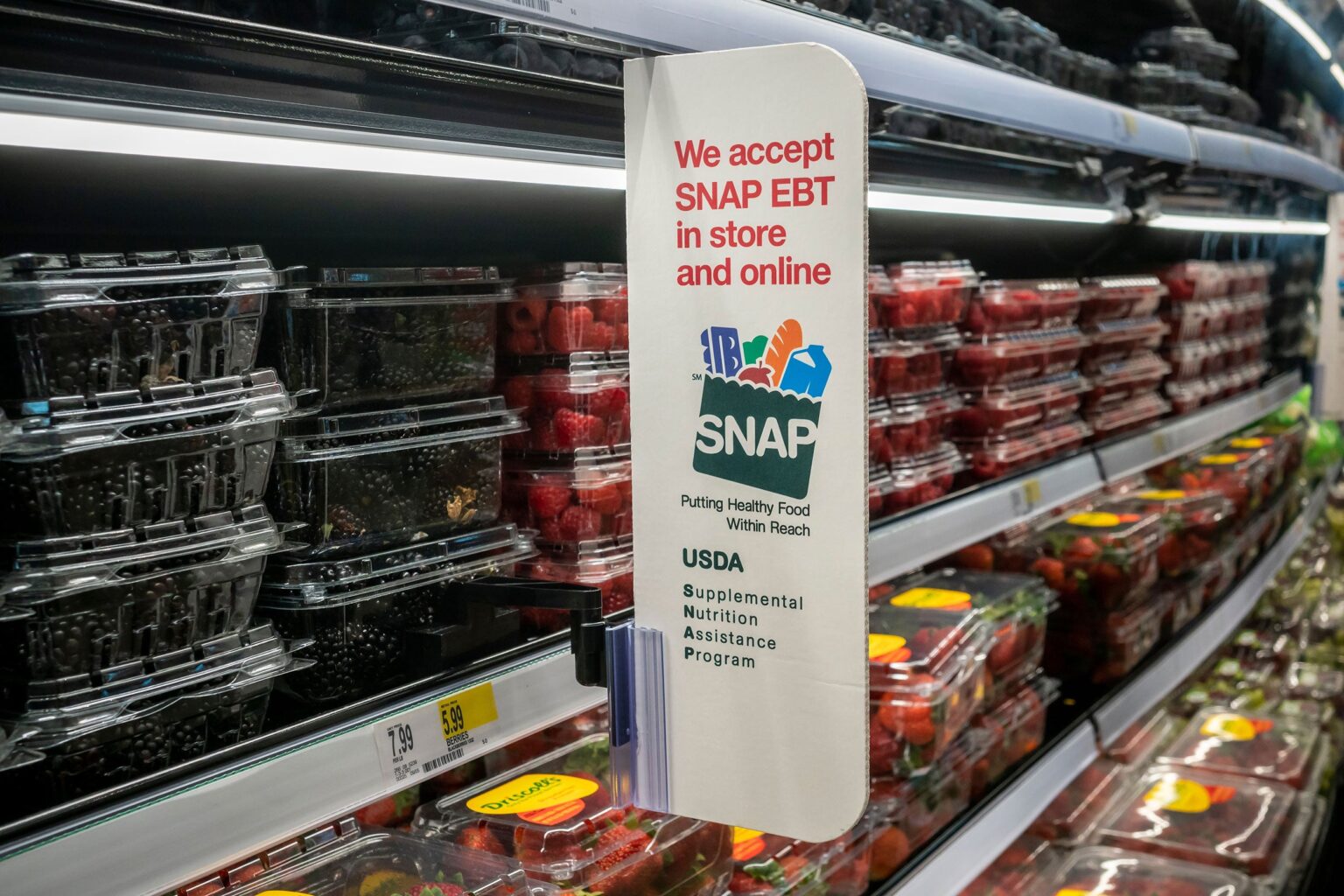The House Republicans’ newly unveiled budget proposal includes sweeping changes to the Supplemental Nutrition Assistance Program (SNAP), potentially impacting millions of Americans who rely on food assistance to meet basic nutritional needs. Advocates and policy experts warn that the proposed reductions could represent the largest rollback of SNAP in the program’s history.
Under the plan, the federal government aims to slash SNAP funding by as much as $300 billion over the next decade. This reduction would not only tighten eligibility and impose stricter work requirements but also shift a significant portion of the program’s financial responsibility to state governments; many of which are already navigating fiscal crises of their own.
In Pennsylvania, that shift could cost the state over $200 million annually just to maintain current benefit levels.

More than 130 community organizations in the state, including Just Harvest, have issued a joint statement condemning the proposal, warning it would “devastate families, burden local governments, and destabilize the food economy.” They argue that reducing federal support undermines the very foundation of the nation’s food security infrastructure and pushes an unfair burden onto states that are already stretched thin.
“We cannot allow the systems meant to protect the most vulnerable among us to be dismantled. Before the House floor vote this week, we encourage all Pennsylvanians to reach out to your members of Congress and tell them to VOTE NO on this incredibly harmful attack on the well-being of low-income people,” Just Harvest said.
At the national level, SNAP serves more than 40 million people each year, including working-class families, senior citizens, veterans, and people with disabilities. Yet under this budget proposal, large swaths of recipients could see their benefits reduced — or cut off entirely. A recent report from child welfare advocates estimates that more than 14 million children could be affected, losing not only access to food assistance but also essential health benefits that are often linked to income eligibility thresholds.
“The consequences of developmental delays and health problems are lifelong in young kids,” Bruce Lesley, president of First Focus on Children, stated at a new conference earlier this week. “It is just a fundamental tragedy that we are considering these enormous levels of cuts.”
While supporters of the budget argue that the cuts are necessary to rein in federal spending and promote personal responsibility, critics point to the long-term costs of increased food insecurity.
Studies have consistently shown that lack of access to consistent, nutritious meals can lead to poor health outcomes, lower educational performance among children, and higher long-term healthcare costs — costs that ultimately fall back on taxpayers.
Some states, such as Nebraska, have taken steps that reflect this more restrictive direction. The state recently filed a waiver request with the federal government to ban soda and other sugary beverages from being purchased using SNAP benefits. Supporters of the waiver say it’s a commonsense public health measure aimed at reducing obesity and diabetes, but opponents view it as a stigmatizing overreach that unfairly polices the choices of low-income individuals while ignoring broader systemic issues.
The discussion around SNAP often becomes a proxy battle in a much larger debate over the role of government in addressing poverty. For every argument about “cutting waste,” there is a counterpoint about dignity and basic human rights.
Many of these changes are being proposed through the budget reconciliation process, a legislative maneuver that allows certain budget-related provisions to pass with a simple majority in the Senate, bypassing the usual 60-vote threshold. This process has often been used to enact major shifts in tax and spending policy with little bipartisan input or oversight, and critics argue it reduces accountability for decisions that carry enormous human consequences.
“Proposals to cut SNAP will widen an already serious problem in many Black and Hispanic communities: levels of food insecurity that are much higher than those of white households,” a statement to Congress from a host of civil rights organizations explained. “SNAP proposals put forth during this Congress would create or worsen barriers and exclusions that disproportionately affect low-income people of color and could exacerbate the long-standing racial disparities in rates of food insecurity.”
SNAP benefits are modest, averaging around $6 per person per day, but they make an outsized difference in keeping people out of deep poverty. According to U.S. Department of Agriculture data, SNAP lifted 2.8 million people above the poverty line in 2021 alone, including more than 1 million children.
Another often-overlooked consequence of SNAP cuts is their potential to damage local economies, especially in rural communities. Every dollar spent through SNAP is estimated to generate between $1.50 and $1.80 in local economic activity. That means grocers, farmers markets, distributors, and food producers all benefit from the steady flow of SNAP dollars — many of whom operate in economically fragile regions where other forms of commerce are scarce.
If federal funding disappears or shrinks drastically, that entire ecosystem will feel the ripple effects. Small retailers may see reduced foot traffic, local farmers might lose customers, and food banks and nonprofit organizations will be forced to stretch already-limited resources even further. Some may not be able to keep up.
“Our food bank network is gravely concerned about the impact these debilitating cuts will have in our state,” said Celia Cole, CEO of Feeding Texas, the state association of food banks. “Families across Texas are already struggling to find affordable food and healthcare, pay their rent, and put gas in the car.”
The political framing of these budgetary changes, centered on deficit reduction and “efficiency,” has drawn criticism from across the ideological spectrum. Advocates argue that it’s deeply contradictory to propose hundreds of billions in SNAP cuts while simultaneously advancing major tax breaks that disproportionately benefit the wealthy.
The timing of these cuts could not be worse. The country is still grappling with the economic fallout of the COVID-19 pandemic, inflation has put strain on household budgets, and wages have not kept pace with the cost of living in many areas. For families who are just barely making ends meet, a reduction or loss of SNAP benefits could be the final push into crisis.
If this proposal moves forward, local communities will likely bear the brunt of the fallout. Charitable organizations, food pantries, and mutual aid groups are already stretched thin, and they were never designed to serve as permanent safety nets. The federal government’s role in programs like SNAP isn’t just about funding: It’s about infrastructure, equity, and a national commitment to reducing hunger in one of the wealthiest countries in the world.
The road ahead is uncertain, and as budget negotiations continue in Congress, so too does the debate about what kind of society the U.S. aims to be. Will the nation uphold its responsibility to care for the most vulnerable, or will it pivot further toward a model that asks the poor to do more with less?
One thing is clear: What happens with SNAP in this budget cycle will reverberate far beyond Washington, D.C. It will be felt in kitchens, grocery stores, and classrooms across the country. The consequences will be real. And for many, they will be immediate.
Bre Holbert is a past National FFA President and studied agriculture science and education at California State-Chico. “Two ears to listen is better than one mouth to speak. Two ears allow us to affirm more people, rather than letting our mouth loose to damage people’s story by speaking on behalf of others.”


